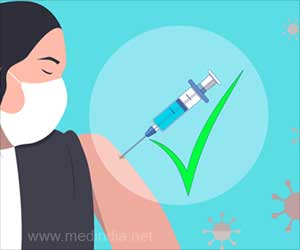“I think they have covered a good sample. They have covered over 8,000 people. It is a good study. But, for vaccines per se, there is no scientific data that says that there is any biological effect of the vaccine that can boost mental health. But vaccine certainly helps in improving mental health in general,” says Dr. Nand Kumar, professor and in-charge, ICMR CARE in Neuromodulation for Mental Health, Department of Psychiatry, AIIMS, New Delhi.
COVID-Vaccine and Mental Health
As it was a short-term study, the Indian doctors affirmed that vaccination has a short-term influence in boosting mental health. Moreover, the study also found that the first dose of COVID-19 vaccines among individuals had reduced their chances of experiencing stress.
However, it was also noted that comparing the mental health of people based on whether they are vaccinated or not might be as easy.
Call for Further Evidence
Hence, based on these present results, the Indian doctors also warrant the need for similar studies in India to better correlate the link between mental health and vaccination.
“You need a very robust kind of randomized controlled trial. The short term is fine. A long term study requires logistic support and good funding and design. If the short term effect of the study is concerned, then, I agree with it. Certainly vaccination has improved mental health not directly but indirectly by boosting people confidence about safety that they are vaccinated and they are safe. People have become more outgoing, confident in going out and meeting people. The fear of the pandemic and that they will be affected by the virus has come down significantly. Before vaccination, there were anxiety, apprehension and fear of getting infected, fear of death,” says Dr. Kumar.
Vaccination and Assurance
In addition, experts thereby believe that safety assurance given by the vaccination to the public might have played a significant but indirect short-term role in boosting mental health.
The people became more confident about not being admitted to the hospital due to the COVID- 19 infection, along with the reduced chance of mortality after vaccination. The trend was even better with lesser relapses among those who have completed both doses of vaccines.
Study Purpose
The study team nevertheless, declared that the study results should be inferred as the direct effects of getting a first vaccine dose. It was concluded that mental health outcomes are potentially improved at a much larger scale among not only vaccinated ones but also the unvaccinated individuals.
The unvaccinated group may reap the benefits of the lesser prevalence of COVID-19 among the population. This might instil reduced fear about losing their loved ones along with better social and economic opportunities.
Vaccine Hesitancy
The study team also focussed on the prevailing hesitancy on vaccines as the jab rollout was initiated. Among the public, those with mental illnesses like anxiety disorder, obsessive fear were affected worst, as their stress levels peaked up.
The apprehension regarding contraindications of vaccines was top among them. The majority of these opinions were seeded from the fact where vaccinated individuals got the infection. However, it was attributed to their non-compliance with social distancing and other appropriate behaviors even while waiting for their turn to vaccinate.
Some of the common psychological impacts faced by these people during the COVID-19 pandemic were stress (34%), poor sleep quality (40%), and psychological distress (34%), as reported by a study published in the Indian Journal of Psychiatry.
Moreover, two-fifths (38.2%) of individuals suffered anxiety and 10.5% had depression. Together, 40.5% of the participants had either anxiety or depression and 74.1% reported a moderate level of stress.
Hence, studies on vaccination state that these myths on vaccines further worsen mental distress and getting a jab may help one to overcome their fear with better mental health among individuals.
Reference:
- COVID-19 vaccines and mental distress
– (https://journals.plos.org/plosone/article?id=10.1371/journal.pone.0256406)
Source: Medindia



